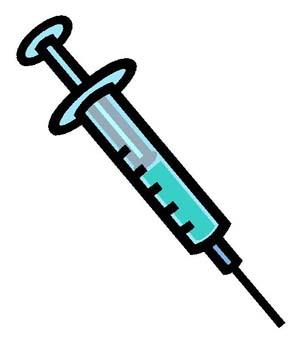The ACLU and the Bay Guardian have filed a federal lawsuit demanding the release of secret documents related to the scramble in California and other states to secure lethal-injection drugs for executions. And we’ve asked the court to issue a preliminary injunction ordering the Drug Enforcement Administration to release the documents quickly.
Both Arizona and Nebraska have recently scheduled executions — and apparently they plan to use drugs that were not obtained in the United States, may have been imported illegally and may not meet American medical standards.
Here’s the ACLU’s statement:
“The DEA has already acknowledged that the public has an urgent need to view records regarding states’ efforts to import execution drugs and the role of federal officials in that process,” said Linda Lye, staff attorney with the ACLU-NC. “We are dismayed that for nearly four months DEA has not released a single document. The public has a right to these records before imported drugs that may have been illegally acquired are used to execute another inmate.”
Here’s the background:
On January 4, 2011, the ACLU-NC and The Guardian submitted FOIA requests to three federal agencies seeking records related to the federal government’s role in assisting – or failing to oversee – efforts by states to acquire controlled substances from outside the United States to carry out executions. The requests, submitted to the DEA, the Food and Drug Administration (FDA), and US Customs and Border Patrol (CBP), sought documents that would reveal whether state officials violated any laws in the states’ scramble to acquire execution drugs and the role of federal agents in the process.
The ACLU-NC and The Guardian sought these records after public records disclosed by the California Department of Corrections and Rehabilitation (CDCR) revealed that California prison officials engaged in a worldwide “secret mission” to acquire sodium thiopental, a controlled substance used in California’s execution process that is no longer legally available in the U.S. The records from the CDCR and other state prisons eventually revealed that six states imported sodium thiopental from Dream Pharma, a drug distributor that operates out of the back of a driving school in the United Kingdom. Records also revealed that two other states imported a controlled substance purporting to be sodium thiopental from an Indian Company that states publicly it is not authorized to import drugs into the U.S.
The DEA granted the ACLU-NC and The Guardian expedited processing of the FOIA request submitted in January. In so doing, the DEA acknowledged that the records relate to an issue of significant public importance and that the public had an urgent need for the information contained in the records. Yet, for nearly four months, the DEA failed to produce any records and failed to even provide a timeline for when records would be produced.
In the interim, based on questions surrounding the drug’s legality, the DEA has taken possession of the sodium thiopental imported from Dream Pharma from five states. This includes Georgia, Tennessee, and South Carolina, which imported the controlled substance directly from the United Kingdom. DEA also took possession of drugs from and Kentucky and Alabama, which acquired the illegal drug from other states. Only Arizona, California, and Arkansas continue to maintain possession of drugs imported from Dream Pharma, while Nebraska and South Dakota continue to possess drugs imported from India.
I’ll keep you posted.

